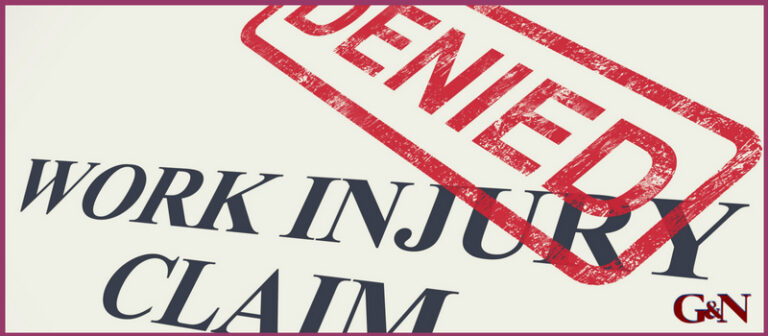Here are some of the common reasons behind the denial of worker’s compensation:
Important Deadlines
There are several deadlines that must be met when filing a Worker’s Compensation claim. Missing just one can cause your claim to be denied, leaving you without the benefits you deserve. Your attorney will ensure that all deadlines are met and all of your paperwork is in order.
Lack of Evidence
A lack of evidence may also result in a denial. Talk to witnesses, take pictures, and see your doctor immediately. Start collecting evidence as soon as possible. If you have an attorney, they will help you get the information you need.
Proving Your Injury Is Work-Related
If you have prior injuries or health conditions, it is extremely important that you prove your new injuries were caused by a work-related event. You need to see your doctor as soon as possible and may be asked to have a company doctor examine you as well.
What to Do After Your Worker’s Compensation Claim Is Denied
If your claim for worker’s compensation is denied, you have a right to file an appeal against the denied claim. The denial letter you receive should include the reasons for your worker’s compensation denial, notification of the deadline for filing your appeal, and other useful information.
If your worker’s compensation is denied, here are some options:
- Filling a Worker’s Compensation Complaint If you have reliable evidence that your worker’s compensation claim was canceled due to fraud, or administrative error, you can raise a complaint at your worker’s compensation administrative office.
- Reopening a Worker’s Compensation Claim Based on the state you live in, the process of reopening a denied claim varies. It usually requires filing a request form with the worker’s compensation board or commission in your area. Make sure to follow all the rules set out in the application form and provide all the supporting documentation.
- Reopening Your Claim after the Statute of Limitations Reopening a previously closed worker’s compensation claim is legally possible. In most states, worker’s compensation judges have great legal discretion in setting the statute of limitations period. Generally, judges define the statutory period in favor of the claimant, especially when the salutatory period is technically over.
- Request an Administrative Hearing If you disagree with the insurance company’s decision on your worker’s compensation claim, you can request an administrative hearing before the worker’s compensation board. You can file worker’s compensation claims on your own, but it’s good to consult your attorney when you request an administrative hearing. They will argue your case, cite relevant employment laws, and showcase your medical records in support of your case.
Don’t Give Up!
If your claim is denied the first time you apply, don’t give up. The worker’s compensation lawyers attorney at Gaylord & Nantais can help you get your paperwork in order so that all deadlines are met. Don’t risk losing your case. Call and schedule your appointment today!











